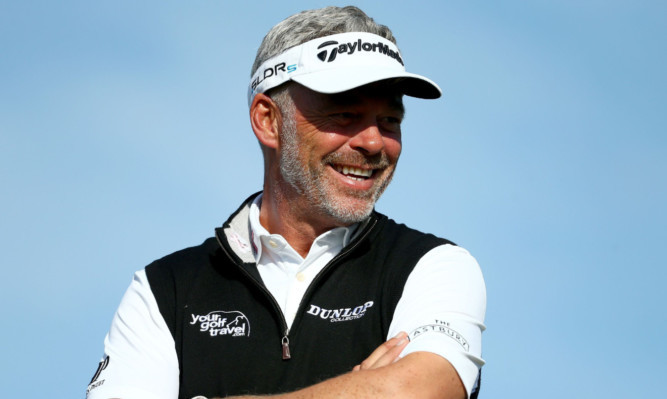Over in Europe, we’ve been smug in the past week, and not just from the golden glow from the Ryder Cup safely retained on these shores.
There’s also been much amusement as the US in the last week tie themselves in knots over what went wrong at Gleneagles.
Europe’s smugness also emanates from the consensus that the US now has to follow our model, or “the template” as Paul McGinley called it. This is the best practice developed over 30 years and the creation of the “boot room” philosophy where future captains are groomed learn the ethos within the team.
But if you were to get the impression that the European captaincy was a natural and seamless succession devoid of political intrigue, you’d be entirely wrong.
Darren Clarke has already emerged as the clear, odds-on favourite for the job next time at Hazeltine. The 2011 Open champion is properly invested in the Ryder Cup philosophy as a long-time team member, and part of the “boot room”. The only thing counting against him, it seems, is the general acceptance that there have been too many GB&I captains and not enough Continental Europeans.
But hold on a minute, if he is such a big part of the “boot room”, where was he at Gleneagles? In the Sky and NBC commentary boxes in an exceedingly sharp suit, mostly.
Clarke wasn’t part of McGinley’s team because the two don’t get on. Worse, Clarke actively tried to torpedo McGinley’s captaincy at the outset by first indicating he wouldn’t stand and then changing his mind, before eventually supporting Colin Montgomerie’s 11th hour campaign to get the job a second time.
Why did he do this? Well, the new selection system for European captains requires that the past three skippers make up the majority of a five-strong panel. With McGinley on there selecting the next three captains, Clarke would be one down before the process began every time.
Clarke and Montgomerie’s relationship hasn’t always been warm, either. But Darren did serve as a vice-captain for both Monty at Celtic Manor, citing that bygones must be bygones when it comes to Team Europe.
McGinley seems to be firmly of this view as well, no matter his personal relationship with his fellow Irishman. He will canvass opinion from the tour membership before making “a wholly professional” contribution to the process. There will be, however, many on tour who remember Clarke’s actions in the last selection with disapproval.
There’s a lot resting on the decision, and not just prestige. A European captain can gain an extremely tidy stipend from doing the job, just as his playing career is winding up. Someone described it to me once as the equivalent of “winning the Dunhill four times”.
The bottom line is: is Clarke the best man for the job? Unquestionably, and he already has the endorsement of Rory McIlroy, which matters a lot.
Part of Europe’s success is founded on past enmities being forgotten for the common good. This should happen again.
**********
For what appears on many levels to be a not entirely serious event, the Alfred Dunhill Links Championship’s capacity for changing lives loomed large again this weekend.
Winner Oliver Wilson went from career freefall to back in the big-time in one leap. This is as a result of the Dunhill’s enormous prizefund, with the winner alone carting off £500,000.
Chris Doak, among the most popular chaps in the Scottish game, went from the European Tour’s relegation zone (115th) to close to qualification for the Race to Dubai finale (71st) for finishing fifth.
The money is due to the largesse of Johan Rupert, the tournament organiser, and the sums paid by the various amateurs to play. That cash is reason given for the amateurs playing on Sunday, when they’re pretty much in the way as pros chase millions.
There’s still an element of the Dunhill that could do with tidying up. There were 26 sponsor invitees in the field (including the eventual winner) and a further 24, mostly Australians and South Africans, under a mysterious exempt category “0b”.
That’s 50 guys who haven’t earned their way on, while six players who had come through Q School were blocked from playing, including Scotland’s Ally Forsyth and Jack Doherty.
It’s Mr Rupert’s show, quite rightly, he should get a big say on who plays, and he puts plenty back into Scottish golf. But all those who have qualified to play on the European Tour deserve a shot at this career-changing money, surely?
**********
Wandering around Carnoustie at the Dunhill last week I happened to bump into Peter Dawson, chief executive of the R&A, who was playing (off two) in the pro-am section of the event.
Naturally, having not seen him since the vote to admit women to the Royal and Ancient last month, I asked him what the schedule was for announcing who the 15 new members “fast-tracked” by the club’s Business Meeting were.
“There won’t be any announcement,” he said. “The club doesn’t ever announce when new members are admitted.”
Really, I replied, I’d have thought they would want to properly celebrate such a historic event?
“Well, you’d be wrong there, again,” he retorted.
Undoubtedly true, but then again I’ve never claimed infallibility. It was also crushingly nave of me to expect that the simple and gratuitously overdue admission of women to the club after 250 years would change the R&A from the pompous and secretive organisation they’ve always been.
